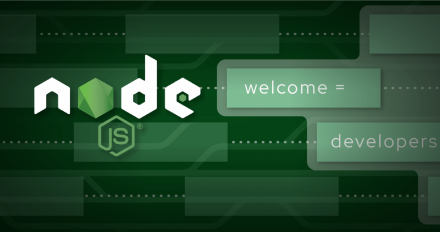
Node.js lead for Red Hat and IBM
Michael Dawson
Michael Dawson is an active contributor to the Node.js project and chair of the Node.js Technical Steering Committee(TSC). He contributes to a broad range of community efforts including platform support, build infrastructure, N-API, Release, as well as tools to help the community achieve quality with speed (ex: ci jobs, benchmarking and code coverage reporting). As the Node.js lead for Red Hat and IBM , he works with Red Hat's and IBM's internal teams to plan and facilitate their contributions to Node.js and v8 within the Node and Google communities.Past experience includes building IBM's Java runtime, building and operating client facing e-commerce applications, building PKI and symmetric based crypto solutions as well as a number of varied consulting engagements. In his spare time, he uses Node.js to automate his home and life for fun.
Michael Dawson's contributions

Article
A Node.js success story at the electrical training ALLIANCE
Michael Dawson
+1
Learn how Red Hat partnered with the electrical training ALLIANCE to implement a Node.js solution that resulted in successful production deployment.

Article
How to handle transactions in Node.js
Michael Dawson
This installment of our Node.js reference architecture series covers integrating transactions into your application.
 Blog
Blog
Red Hat Node.js team experience at OpenJS World and Open Source Summit North America 2023
Michael Dawson
We are just back from OpenJS World which was held last week. This year OpenJS
 Blog
Blog
Red Hat Node.js team at OpenJS World and Open Source Summit North America
Michael Dawson
Red Hat Node.js team at OpenJS World and Open Source Summit North America OpenJS

Article
How to investigate 7 common problems in production
Michael Dawson
Learn how to investigate common problems in production, including memory leaks, slow performance, etc.

Article
Introduction to the Node.js reference architecture, Part 11: Typical development workflows
Michael Dawson
When discussing architecture, consider that developers use various environments and workflows. We describe 5 typical workflows in part 11 of the Node.js series.
 Blog
Blog
Observability for Node.js applications in OpenShift
Michael Dawson
The ability to observe and collect information about your application in

Article
How to deploy Next.js applications to Red Hat OpenShift
Michael Dawson
Next.js is one of many popular frameworks for deploying sites based on Node.js. In this article, you'll learn how to deploy Next.js applications using the ubi8/nodejs-16 and ubi8/nodejs-16-minimal containers available from Red Hat. We will also show you how to deploy the containers to Red Hat OpenShift.

A Node.js success story at the electrical training ALLIANCE
Learn how Red Hat partnered with the electrical training ALLIANCE to implement a Node.js solution that resulted in successful production deployment.

How to handle transactions in Node.js
This installment of our Node.js reference architecture series covers integrating transactions into your application.

Red Hat Node.js team experience at OpenJS World and Open Source Summit North America 2023
We are just back from OpenJS World which was held last week. This year OpenJS

Red Hat Node.js team at OpenJS World and Open Source Summit North America
Red Hat Node.js team at OpenJS World and Open Source Summit North America OpenJS

How to investigate 7 common problems in production
Learn how to investigate common problems in production, including memory leaks, slow performance, etc.

Introduction to the Node.js reference architecture, Part 11: Typical development workflows
When discussing architecture, consider that developers use various environments and workflows. We describe 5 typical workflows in part 11 of the Node.js series.

Observability for Node.js applications in OpenShift
The ability to observe and collect information about your application in

How to deploy Next.js applications to Red Hat OpenShift
Next.js is one of many popular frameworks for deploying sites based on Node.js. In this article, you'll learn how to deploy Next.js applications using the ubi8/nodejs-16 and ubi8/nodejs-16-minimal containers available from Red Hat. We will also show you how to deploy the containers to Red Hat OpenShift.
